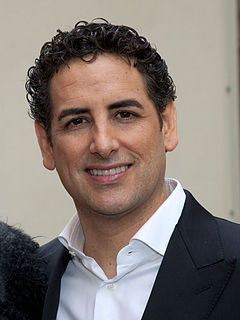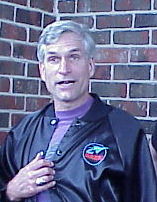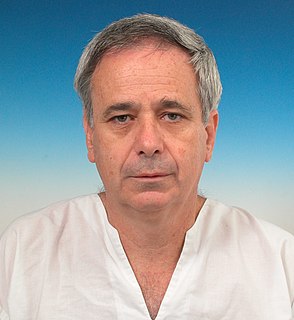A Quote by George Scratchley Brown
Now, in answer to the question would we use force in the Middle East. I don't know...I hope not. We have no plans to, it is conceivable, I guess. It would be almost as bad as the seven days in May. You conjure up a situation where there is another oil embargo, and the people in this country are not only inconvenienced and uncomfortable, but suffer.
Related Quotes
The "magic if" is a tool invented by Stanislavski, the father of acting craft, is to help an actor make appropriate choices. Essentially, the "magic if" refers to the answer to the question, "What would I do if I were this character in this situation?" Note that the question is not "What would I do if I were in this situation?" What you would do may be very different from what the character would do. Your job, based on your analysis of the script, the scene, and the given circumstances regarding the who of your character, is to decide what he or she would do.
There are some people that aren't into all the words. There are some people who would have you not use certain words. Yeah, there are 400,000 words in the English language, and there are seven of them that you can't say on television. What a ratio that is. 399,993 to seven. They must really be bad. They'd have to be outrageous, to be separated from a group that large. All of you over here, you seven. Bad words. That's what they told us they were, remember? 'That's a bad word.' You know bad words. Bad thoughts. Bad intentions.
It was important for me to show that Beirut and Lebanon were once the pearl of the Middle East. Beirut was once called the Paris of the Middle East and to have that feeling of a destroyed place that once was beautiful and glamorous and visually impressive was important. I think it's even sadder to get the feeling that this country, and indeed the whole Middle East, could have been a major force in the world if people would get together and forget about destruction, death and wars. But unfortunately, it's not happening yet.
The libertarian approach is a very symmetrical one: the non-aggression principle does not rule out force, but only the initiation of force. In other words, you are permitted to use force only in response to some else's use of force. If they do not use force you may not use force yourself. There is a symmetry here: force for force, but no force if no force was used.
Historically, the argument is we stole the country from the Indians. America stole the labor of African Americans for over 200 years under slavery. America took half of Mexico by force in the Mexican War. American foreign policy, the progressives say it's based on theft. Why? Because look, America is very active in the Middle East. Why? The Middle East has oil. Notice that America doesn't get involved in Haiti or Rwanda because they don't have any oil.
I travel a lot. It used to be, when I would go to any country, I could guarantee that the first question would establish my name, and the fact that I've written Roots, and the third question, at least no later than the fourth question would not be a question, so much as a statement, something like, "We understand that in America white people do such and such bad things to black people."
Gas prices in many parts of the country are nearing $4 a gallon; it could get even worse as unrest spreads throughout the oil-exporting Middle East. Yet the Obama administration once again seems to see no crisis. It has curtailed new leases for offshore oil exploration for seven years and exempted thousands of acres in the West from new drilling. It will not reconsider opening up small areas of Alaska with known large oil reserves.
The use of force is always an answer to problems. Whether or not it's a satisfactory answer depends on a number of things, not least the personality of the person making the determination. Force isn't an attractive answer, though. I would not be true to myself or to the people I served with in 1970 if I did not make that realization clear.
Unless this [Barack Obama] American administration is willing to diverge from the conventional American policy in the Middle East by changing its basic attitudes on crucial questions, foremost of them Palestine, and support genuinely the rights of people for independence, sovereignty and identity across the board, the only "resolve" one would hope from the USA is to stay out of the Middle East for a while.
The necessary consequence of man's right to life is his right to self-defense. In a civilized society, force may be used only in retaliation and only against those who initiate its use. All the reasons which make the initiation of physical force an evil, make the retaliatory use of physical force a moral imperative. If some "pacifist" society renounced the retaliatory use of force, it would be left helplessly at the mercy of the first thug who decided to be immoral. Such a society would achieve the opposite of its intention: instead of abolishing evil, it would encourage and reward it.



































